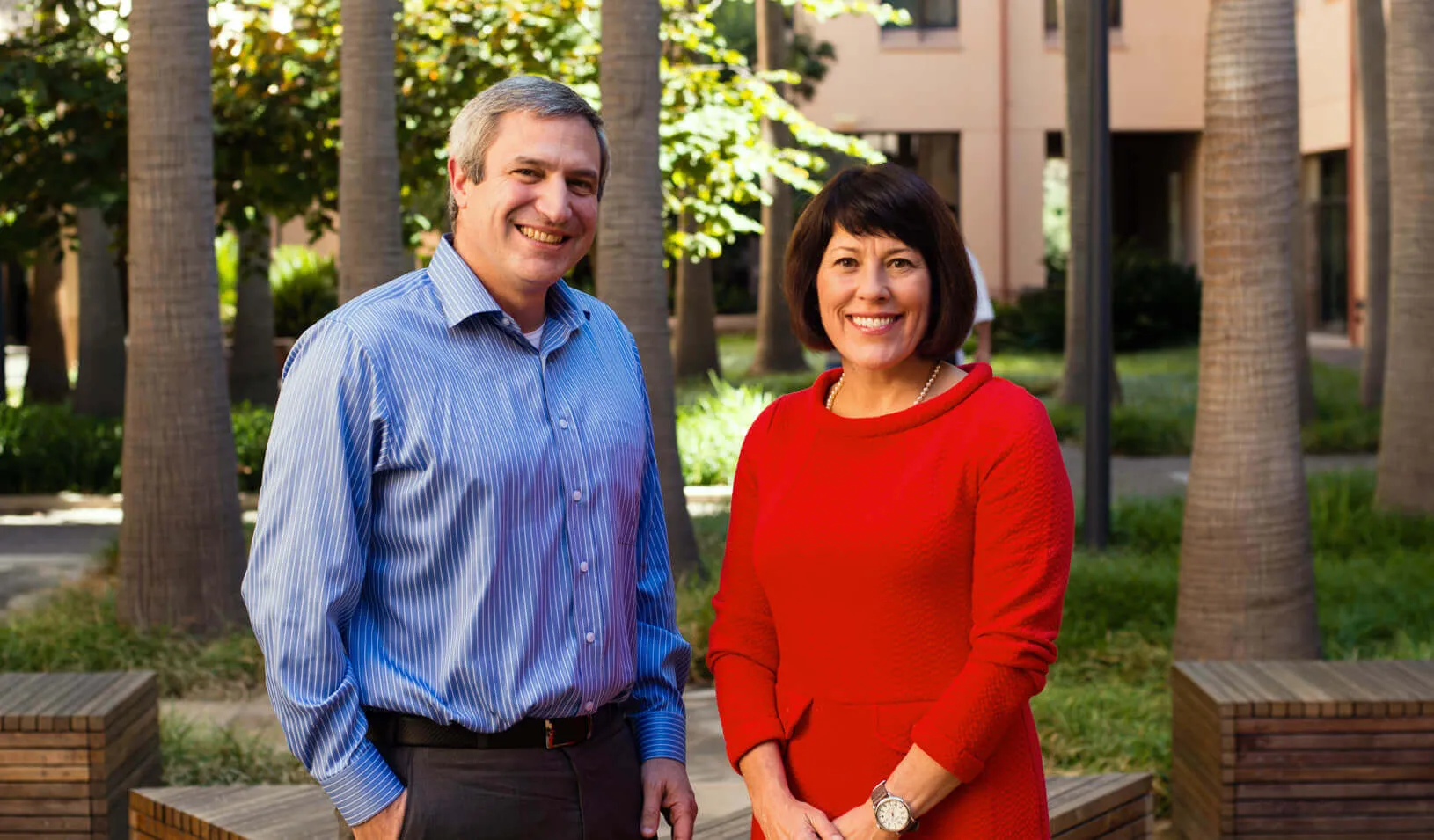August 07, 2017
What will business school faculty be researching a decade from now, and what does the future of management education look like? These are among the questions the members of two long-range planning committees at Stanford Graduate School of Business hope to answer in the upcoming months.
“With our new administration at Stanford GSB, it’s a good time to take stock of where we are and begin thinking about how to move forward and remain the fabulous research faculty that we are right now,” says professor of organizational behavior Sarah Soule. She and professor of economics Andy Skrzypacz are co-chairs of the Research on the Advancement of Management committee. Professor of economics Yossi Feinberg and professor of accounting Anne Beyer are leading a committee examining the Future of Management Education.
Soule and Feinberg say their mandate is to gather as many potent ideas as possible from a variety of key stakeholders, including faculty, staff, alumni, and students. The insights gathered will be synthesized into a series of recommendations the committees plan to make to Jonathan Levin, who started as dean of Stanford GSB last September. The work also dovetails with the broader Stanford Long-Range Planning underway across the entire university.
The Future of Management Research
Soule’s committee is asking faculty to weigh in on a range of questions:
- What topics do they expect to be researching over the next five to 10 years?
- What are the big questions that have yet to be answered in their fields?
- What more does Stanford GSB need to do to support their research?
- How can the school better communicate their findings to a broader audience?
Students will be asked to share their experience with how research is being taught in the classroom. And since many of them are coming to Stanford GSB after having already started careers, they will be asked about what questions and ideas they have gathered from their organizations that could influence faculty research.
Even though both committees are in the early phases of their work, Soule says that trends are already emerging. “The one that keeps coming up is big data. What do we mean by big data? How do we better analyze big data? You could imagine a university-wide big data initiative, where Stanford is the place for computational methods in the social sciences.”
Soule says that another possible area to explore is finding ways to better collaborate with organizations for research purposes. “How can we enter into better partnerships so that we can both have access to firms’ data and do research that might be actionable for the companies that work with us?” Soule says. “Conducting experiments and using data from firms to improve them would be an opportunity to engage our alumni network and get our MBA students excited about actionable research.”
The Future of Management Education
In addition to looking at the core MBA and MSx degree programs and the suite of executive education and certificate programs, Feinberg says the committee will also explore long-term opportunities and could provide recommendations for new initiatives.
“There will be things that come out of the committee that within two or three years we can make changes and implement and improve,” Feinberg says. “But the committee is really looking at the long-term question of where is management education headed, and how should Stanford GSB be best positioned to be the leader in that?”
Answering those questions and rethinking the educational experience at Stanford GSB, Feinberg says, stems from the school’s mission to develop innovative, principled, and insightful leaders. “We’re looking at this holistically. We want to educate leaders, and measure success by people who impact the world in a positive way,” he says. “Let’s look at career and impact, then ask ourselves what’s the right educational experience to enable that, and what can we do to bring the best people who can leverage the educational experience?”
Both committees plan to have a series of recommendations in place in the coming months. “We’re very much in the data-gathering phase right now,” Soule says.
“Listening to the collective wisdom of people who care deeply about the school is going to give us the guiding direction,” Feinberg says, adding that they are being careful not to predict the outcome.
“It’s completely open, which is great because rather than constraining it early on we’re letting all flowers bloom,” Soule says. “And then we’ll see what bubbles up.”
— Ian Chipman
For media inquiries, visit the Newsroom.



